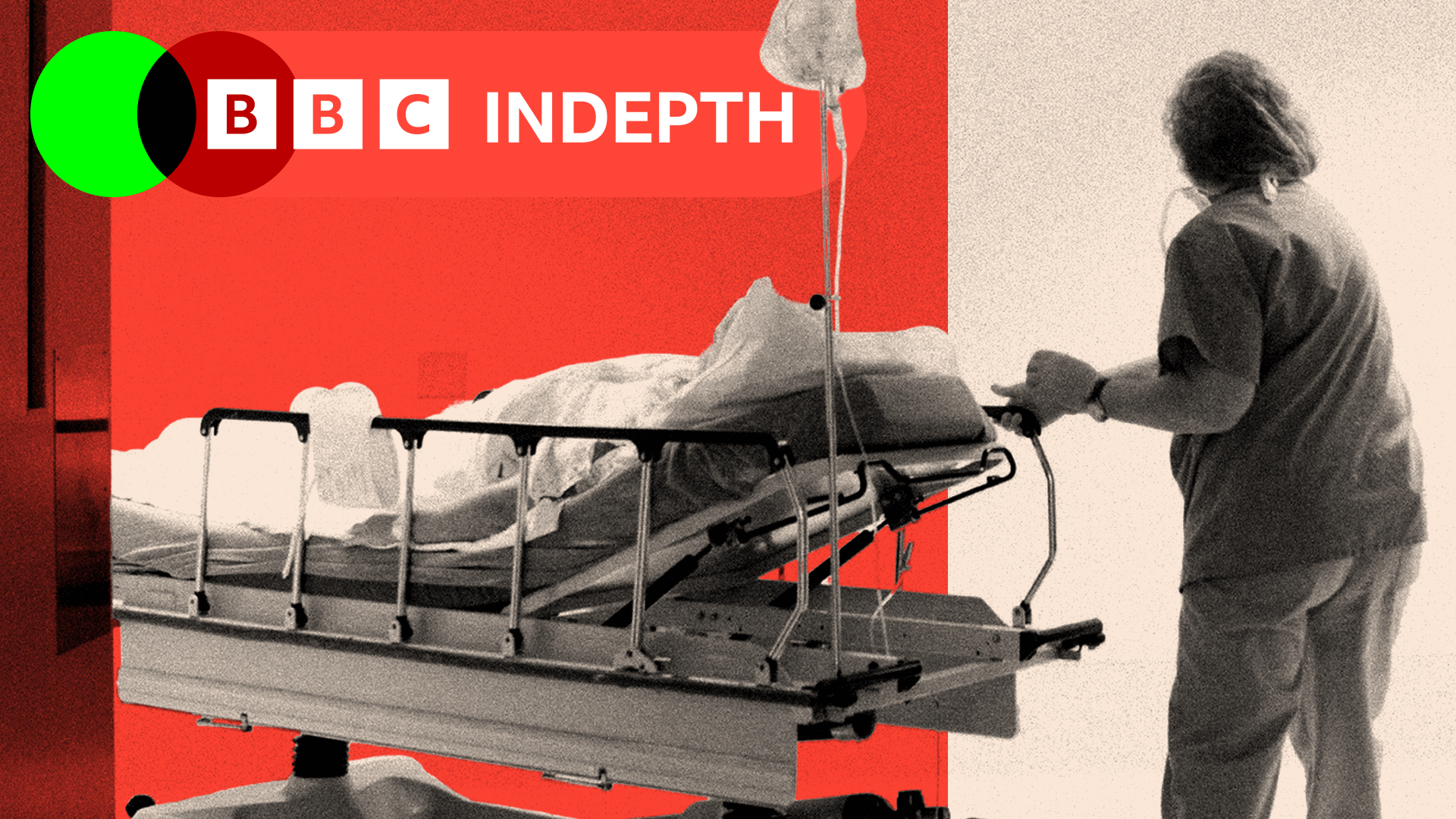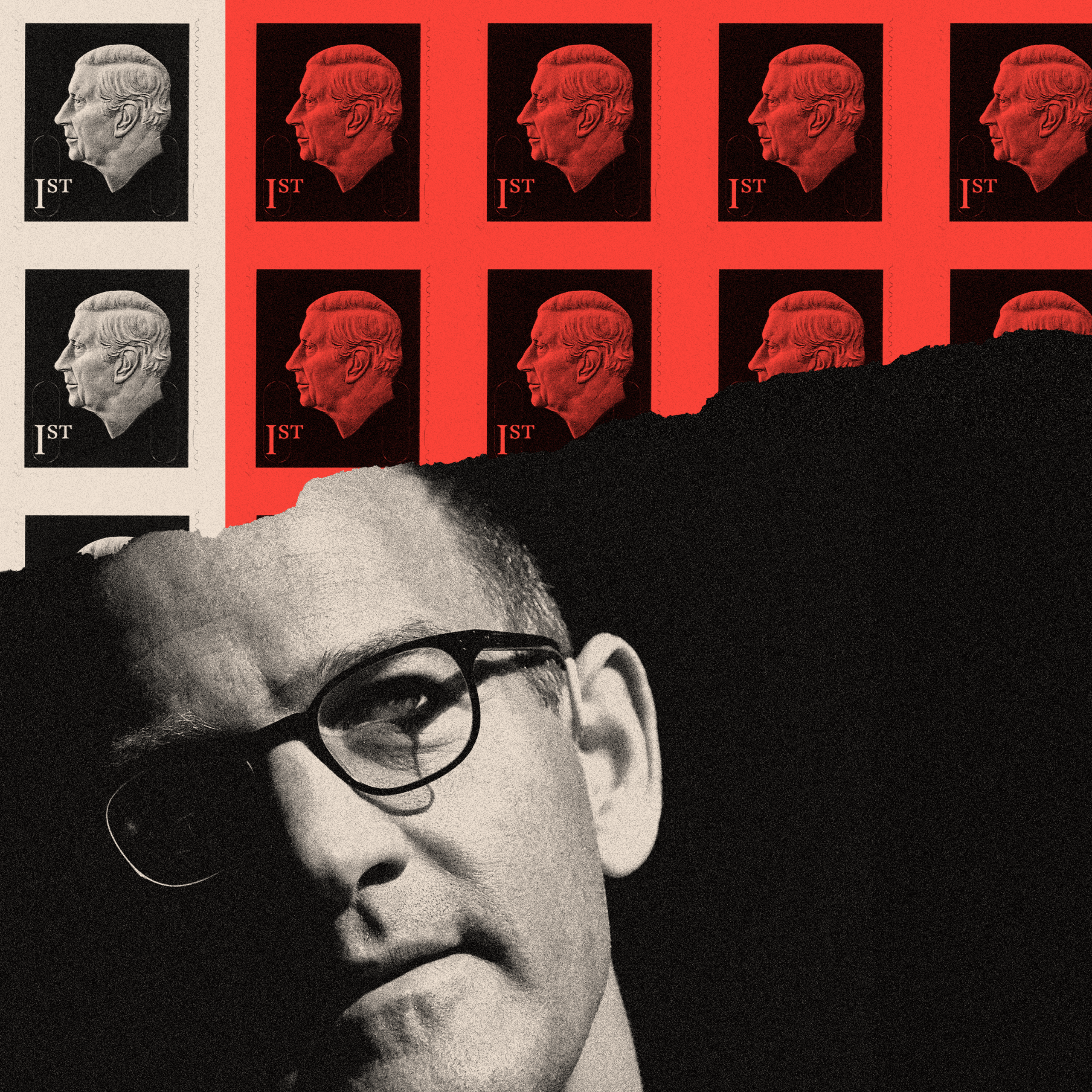
From the end of April, the 500-year-old Royal Mail will be controlled by a Czech billionaire who co-owns a football club and is a major investor in a British supermarket - so, why would he want this ailing institution?
"A pair of scissors, one empty teapot and some hot water, please." The slightly baffled staff at Claridge's scrambled to comply with Daniel Kretinsky's breakfast order as he sanitised and moisturised his hands.
The upscale hotel has been serving tea to the global elite for decades but Mr Kretinsky brought along his own packet of Chinese green tea, which he snipped open (hence the scissors) and poured into the empty pot.
He was tall, perfectly groomed, steely-eyed but unfalteringly polite and thoughtful. If you told anyone in the dining room he was a billionaire, they would have no problem believing it.
Known as the Czech Sphinx for his enigmatic style, Mr Kretinsky, who is 49, is worth £6bn according to the Sunday Times Rich List. He lives in plush mansions in Paris and London, was originally a lawyer and made his fortune in European energy markets.
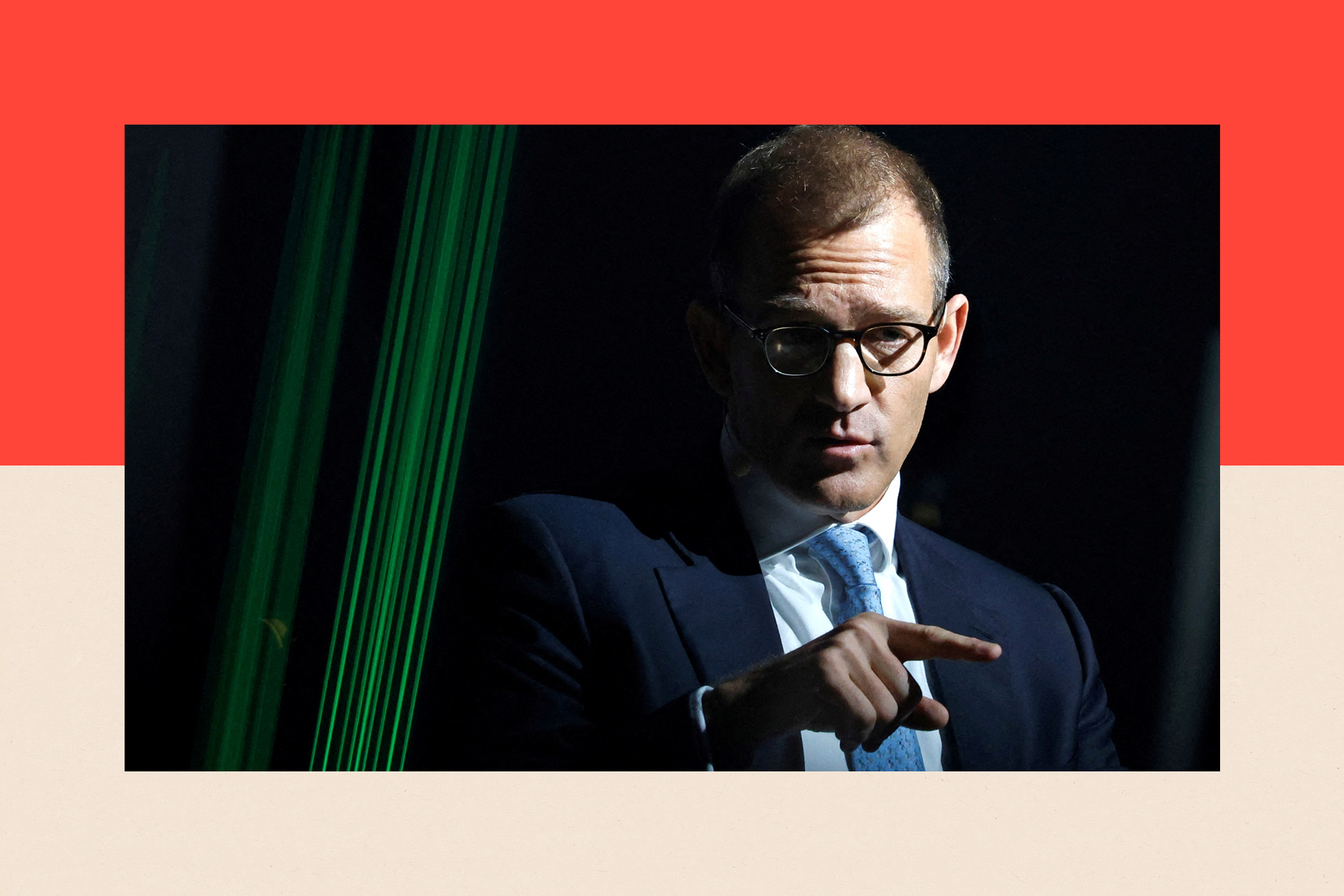
Billionaire investor Daniel Kretinsky has major investments in Sainsbury's and West Ham United football club
Our meeting was at Claridge's in June 2024 - I was trying to convince him to give me an interview about his audacious attempt to buy a British institution that was once seen as a national treasure: Royal Mail.
His profile as a buyer was one that unions and ministers typically would be wary of because of his historic connections with Russia - his companies own a gas pipeline that has transported Russian gas to Europe.
But six months on, his bid to buy Royal Mail's parent company was cleared by the UK government after he agreed "legally binding" undertakings.
The government was awarded a so-called "golden share", requiring it to be notified of any major changes to Royal Mail's ownership, headquarters location and tax residency. The deal was also blessed by unions.
Earlier this month, the owner of Royal Mail said that the takeover could be completed by the end of April as the deal cleared the final regulatory hurdles standing in the way.
But step back and Royal Mail seems a strange target for a globally mobile oil and gas billionaire investor to set his sights on. It begs the question why would anyone, let alone a successful international entrepreneur, want to buy this faded relic?
How Royal Mail's crown slipped
Royal Mail was founded by Henry VIII more than 500 years ago and still carries the royal cipher on its vans. It is part of the fabric of British life and many people still have a fond relationship with their 'postie', who walks down their path bringing their letters and parcels to their door.
But in recent years Royal Mail's crown has slipped. It is losing money and market share, has been fined for missing delivery targets and has made an enemy of its own workforce through a series of bitter strikes.
Royal Mail's letter business is in steep decline too. It has gone from a peak of 20 billion letters sent in 2004 to under seven billion sent last year.
In December 2024, it was fined £10.5m by the regulator Ofcom for failing to meet delivery targets for first and second class mail.
While the boom in e-commerce has seen the volume of parcels rise, Royal Mail's share of that more profitable business has been falling as new competitors like DPD, DHL, Amazon and Evri have eaten into its market share.
Royal Mail was split off from the Post Office in 2012 and privatised in 2013 at a value of £3.3bn. Its shares immediately rocketed by 38% on the first day of trading, leading to criticism - from the National Audit Office, among others - that it had been sold on the cheap.
At its peak in Covid-era May 2021, the company was worth more than £6bn but had slumped to just over £2bn when Mr Kretinsky launched his takeover bid last April.
He sealed the deal at £3.6bn - 63% higher than before he signalled his intent, but barely more than it was worth at privatisation over a decade ago.
"Royal Mail is a business that has historically found it difficult to grow revenues by more than costs," says Alex Paterson, an analyst at Peel Hunt stockbrokers. "It has seen its parcels market share eroded by more dynamic competition that has been able to invest more in technology, and it has struggled with industrial relations to keep staff working towards a common goal.
"This is not a challenge to underestimate nor one that can be overcome quickly, but that requires considerable long-term investment in infrastructure, technology and staff."
Part of the challenge, and one that puts Royal Mail at a disadvantage compared with its rivals, is that unlike them, Royal Mail has to meet a string of legal and regulatory obligations, says Hazel King, the editor of Parcel and Post Technology International.
Under what is called the universal service obligation (USO), Royal Mail is required by law to deliver letters six days a week and parcels five days a week to every address in the UK. So it cannot pick and choose which business it wants to do.
"Royal Mail must meet their universal service obligation while trying to compete with private firms who often cherry-pick the most profitable business," says Ms King.
The 'Czech Sphinx's' plan
Mr Kretinsky says he has a plan. His success in the energy sector allowed him to buy a 27.5% stake in Royal Mail's parent company, International Distribution Services (IDS). And his company – EP Group – intends to build a pan-European conglomerate built on three pillars: energy, retail and logistics.
He sees IDS as the cornerstone of the logistics pillar, with a plan to go toe-to-toe with the likes of Deutsche Post DHL, DPD and Amazon.
The USO has been under review by Ofcom, with Royal Mail hoping that the regulator will reduce the requirement to deliver second-class letters from six days a week to every other weekday. That single move could save Royal Mail £300m a year – putting it back on a break-even footing.
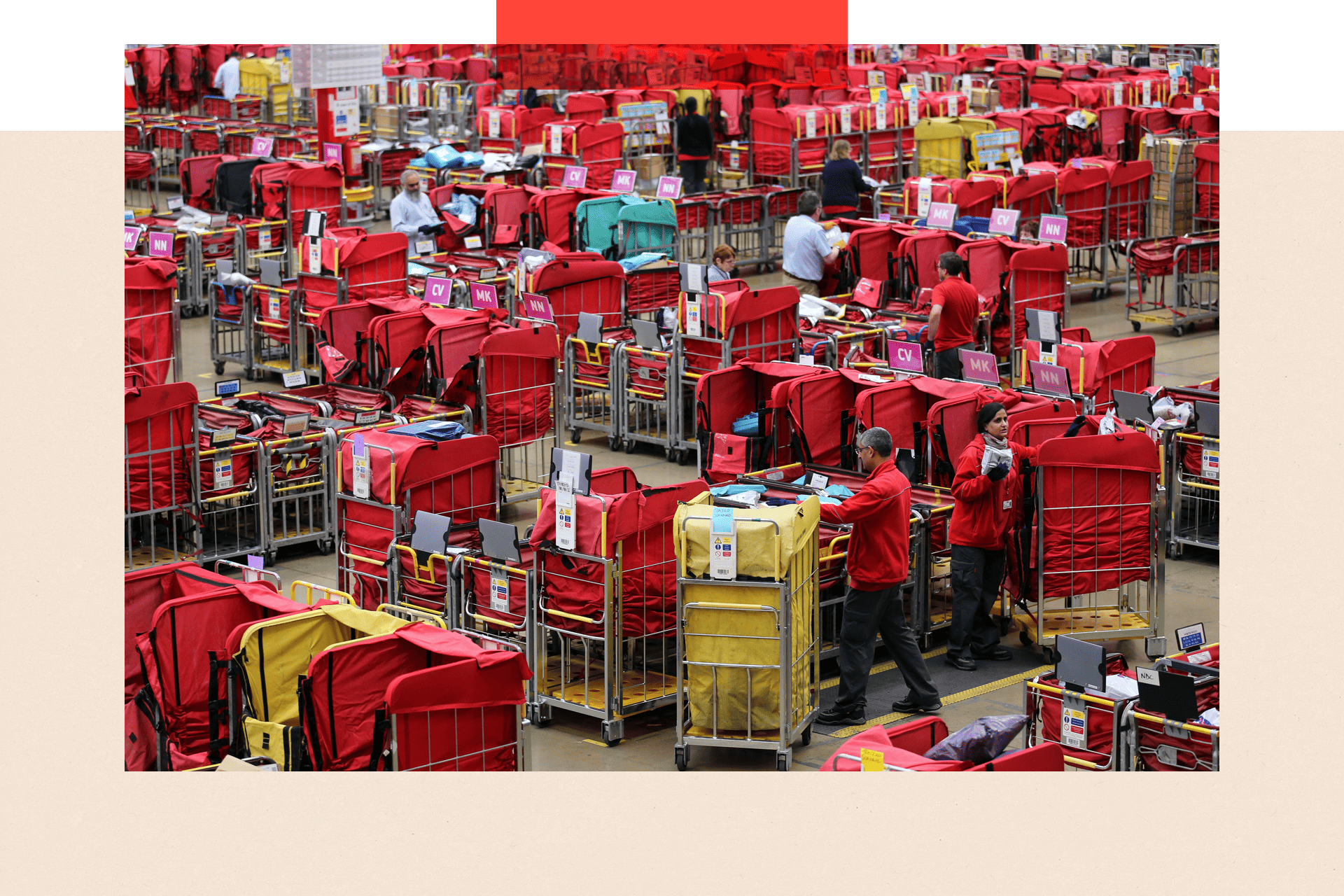
Mr Kretinsky aims to create a pan-European logistics giant, potentially rivalling Evri
Mr Kretinsky told me during our interview that he would honour the USO "as long as I am alive", but he is unsurprisingly very much in favour of changing its terms. He said he hopes that "rational minds prevail" when reforming a service that is unsustainable in its current form.
So far, the noises from Ofcom seem to be supportive. The regulator's chief executive Dame Melanie Dawes told the BBC there were "real questions about what the service needs to be going into the future".
Given letter numbers are falling, "we have to think about what is economical", she said, adding Ofcom would be publishing plans for the regulation of Royal Mail "to make sure it is sustainable".
While Royal Mail generally welcomed the proposed changes to the Universal Service Obligation, Royal Mail pushed back against proposed new delivery time and business customer requirements.
Royal Mail said last week that the level at which Ofcom is proposing to set the new delivery targets – 99.5% of First Class letters delivered within three days, and the same percentage of Second Class letters within five – is "over specified and will add significant cost to the delivery of the Universal Service".
It also expressed concerns that proposals to add a new category of regulation to ensure timely delivery for business users like direct mail companies "goes against the wider government drive to reduce unnecessary regulation".
European parcel know-how
But there are other factors that may have driven the sale. Some analysts have speculated that there is another jewel in the crown of IDS - and that Mr Kretinsky may really be after a different part of the business.
Along with Royal Mail, IDS also owns a European parcels business called GLS which it acquired in 1999 – long before Royal Mail was split off from the Post Office and privatised.
Last year GLS made a profit of £320m, compared to Royal Mail, which lost £348m as letter volumes continued to plunge and new competitors ate into its market share of the more profitable parcels business.
"GLS has been a profitable growth business, which has seen investment whereas Royal Mail has been a perpetual underperformer, as the board of parent company IDS has invested where it thinks it will see the best returns," says Mr Paterson.
Mr Kretinsky rejects suggestions from some quarters that he wants to break up the group and has committed to keeping it together for at least five years. Even beyond that, he says the plan is to grow the company rather than shrink it, so a disposal of GLS would be "nonsensical".
In fact, Mr Kretinsky says he hopes to bring the European parcel know-how at GLS to bear on Royal Mail's operations.
What the unions are hoping, and Kretinsky is promising, is that Royal Mail will see greater investment and over time begin to look a bit more like GLS and its European counterparts such as Deutche Post DHL.
Catching up with competitors
Given all the challenges Royal Mail faces, there's an obvious question - why would a billionaire want to chance his arm on turning round something that others couldn't, while up against powerful competitors?
Well, if you believe as Kretinsky does - and he is surely right - that getting parcels to people is a profitable and growing industry, then buying Royal Mail and GLS gives you a way to become a big European player in logistics quickly.
Add to that a powerful and historic brand, a database with every single UK address and a frontline workforce that most of its customers are fond of and pleased to see when they walk down the path - then, despite the challenges, it begins to make sense.
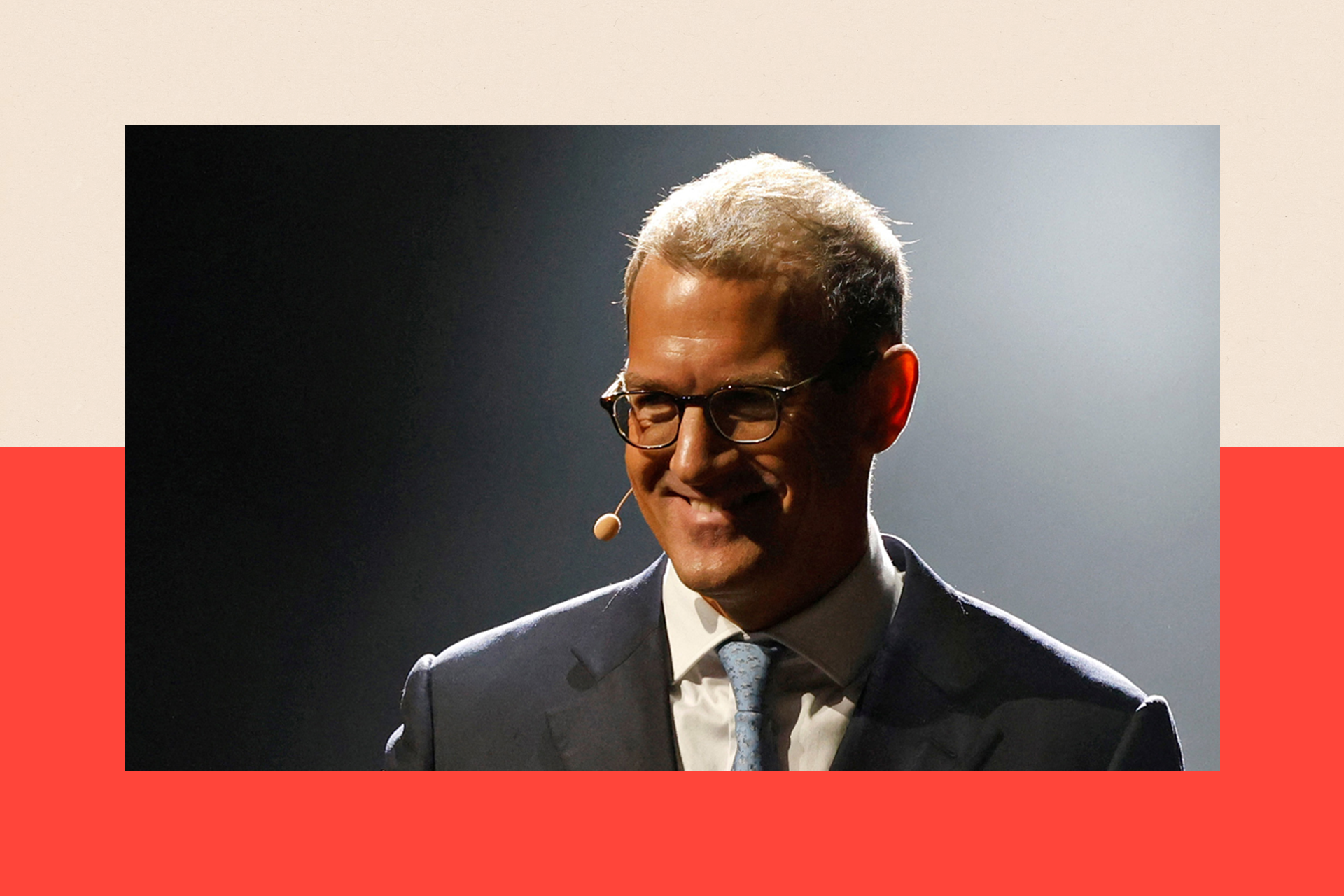
The Czech entrepreneur has been described as a "quiet sphinx" for his inscrutable style
Mr Kretinsky is convinced future growth lies in out-of-home (OOH) delivery. The parcel lockers found in supermarket car parks and elsewhere, operated by the likes of Amazon, Evri and UPS, have grown quickly across Europe.
Earlier this month it was reported that Sainsbury's would be the first supermarket to partner with Royal Mail and install parcel lockers at supermarkets. Some are already operating at several stores including ones in Clapham, Kidderminster and Chislehurst.
Royal Mail has also trialled a new postbox that can take small parcels. Customers procure a barcode from an app, then at the postbox they scan the barcode and drop the parcel into a drawer - this is all powered by solar panels on the box.
Emma Gilthorpe, Royal Mail chief executive, called it an "historic change" to give postboxes "a new lease of life".
All of this boils down to the same thing: convenience. It means customers don't have to wait at home for a delivery - the sender or parcel business emails or texts a code to unlock the locker. For the business it's more efficient, allowing couriers to deliver lots of parcels to one place - meaning fewer miles on the road and less time.

Royal Mail has long been part of the fabric of British life
"If they can grow the parcels business and claw back market share, there is every chance that they can add new jobs that could offset the reduction in jobs in the declining letters business," says Mr Paterson.
"There is a significant long-term opportunity to run Royal Mail more successfully with regulatory changes to the USO and greater investment in technology and out-of-home deliveries."
But Royal Mail still has a lot of catching up to do with its competitors. It currently has 1,500 lockers in the UK and aims to grow this figure to at least 20,000 over time. By contrast, Amazon already has 5,000 lockers across the UK and InPost has 7,500 across the UK.
Winning over doubters
That Mr Kretinsky has pulled off the takeover is no easy feat. Royal Mail is, after all, considered vital national infrastructure and as such the deal required review under national security laws.
Then there is the fact that his companies own a gas pipeline that has transported Russian gas to Europe – paid for and approved by EU member states. The small amount that was transported was reduced to zero at the end of 2024 when Ukraine refused to renew permission for any gas to flow across its borders.
Speaking in front of MPs in November, UK Business Secretary Jonathan Reynolds referred to Mr Kretinsky as a "legitimate business figure" whose alleged links to Russia had already been reviewed and dismissed when he became the biggest shareholder in the company two years ago.
Getting the unions on board seemed even more of a challenge and the Communication Workers Union was wary of Mr Kretinsky. "The CWU believes Royal Mail should be in public hands," Dave Ward, the CWU's general secretary, told the BBC in June. "We know there are legitimate concerns about Royal Mail Group being owned by a foreign private equity investor."
But during negotiations, union representatives secured a series of time-limited commitments from him, including guarantees that he will protect Royal Mail's pension surplus, that there will be no compulsory redundancies for two years, no sell-off or break-up of any operational part of the existing company and no outsourcing of grades represented by the CWU.
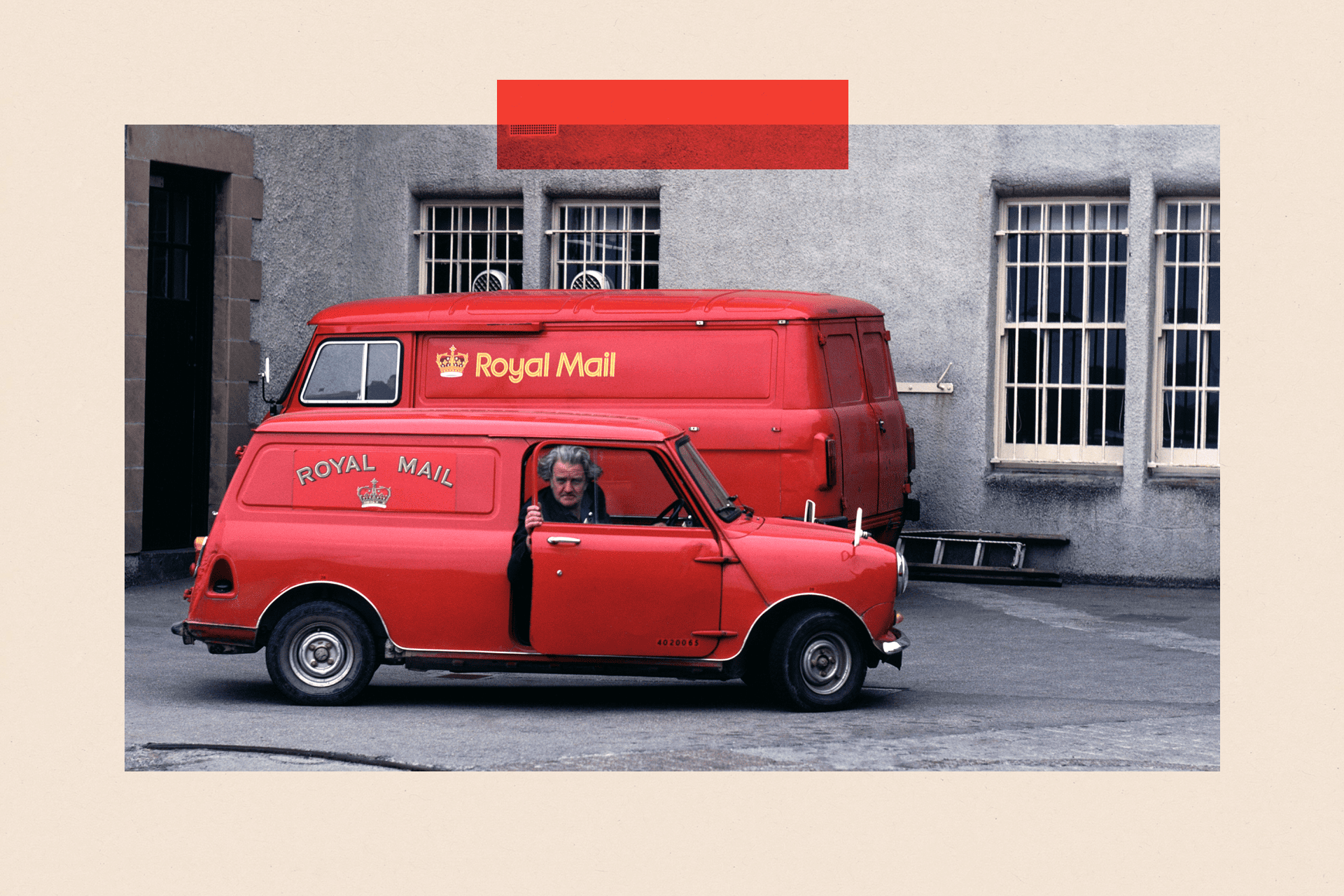
Royal Mail, a key part of British infrastructure, is set for a new chapter
Mr Kretinsky also agreed to restrictions on moving dividends out of Royal Mail Group and to respect agreements with and recognition of the CWU. He said he would keep the brand name and Royal Mail's headquarters and tax residency in the UK for the next five years.
Union bosses told me that a life under Mr Kretinsky "couldn't be any worse than what we have had for the last 10 years".
So, as Mr Kretinsky looks certain to pull off the sale, what will customers notice?
The frequency of second-class deliveries may be reduced after the Ofcom review. We will see new Royal Mail lockers appearing in our neighbourhoods. And the price of first-class mail may go up: second-class stamps are regulated by Ofcom, while first-class ones are not.
The monarch's head will still be on those stamps, but there is a new king of our mail system. And his name is Daniel Kretinsky.
Top image credit: Getty
BBC InDepth is the home on the website and app for the best analysis, with fresh perspectives that challenge assumptions and deep reporting on the biggest issues of the day. And we showcase thought-provoking content from across BBC Sounds and iPlayer too. You can send us your feedback on the InDepth section by clicking on the button below.
Get in touch
InDepth is the home for the best analysis from across BBC News. Tell us what you think.

Get our flagship newsletter with all the headlines you need to start the day. Sign up here.




